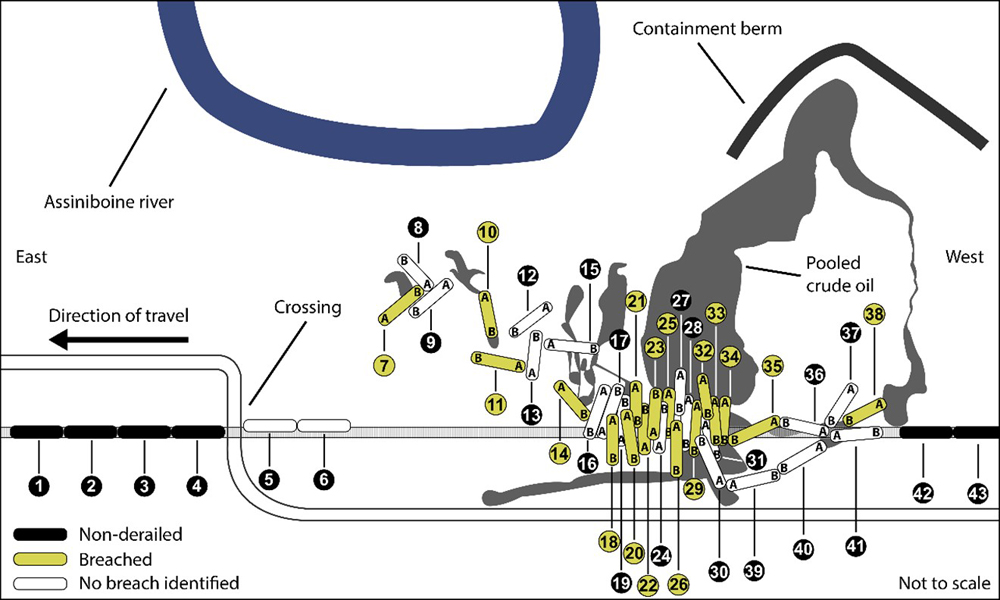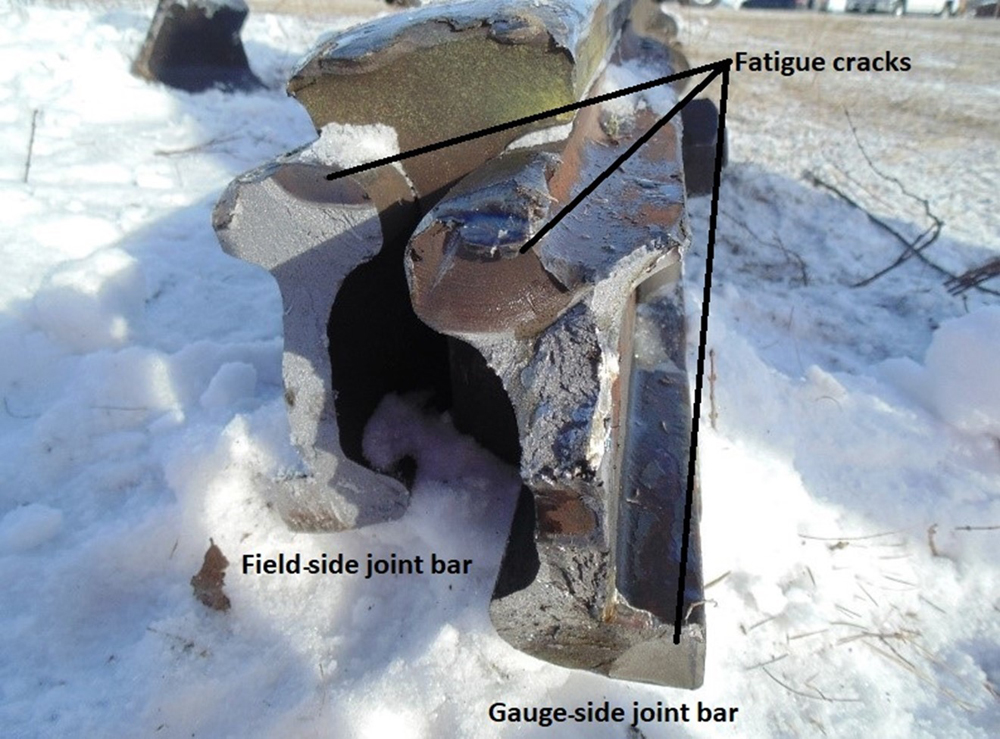
WINNIPEG, Manitoba — A observe-repair service error led to a rail-joint failure, producing a 2019 derailment of a Canadian Nationwide oil practice, the Transportation Security Board of Canada explained in its summary of a report unveiled Friday.
The Feb. 16, 2019, accident in the vicinity of St-Lazare, Man., led to the derailment of 37 autos of a 110-vehicle crude oil coach, with 815,000 liters (215,300 gallons) of oil spilling from 17 of the damaged autos. About 1,000 feet of monitor was ruined or ruined. There have been no injuries and no fire occurred.
Investigation observed that for the duration of a repair about 6 weeks prior to the derailment, a compromise joint bar, utilized to be part of rails of two distinct dimensions, was installed together with a typical joint bar. This led to an unstable joint which slowly loosened and ultimately failed.

The report notes that the unsuccessful joint was one particular of five in just 49 ft on the track’s south, which impacted the stiffness of the observe and led the joint to are unsuccessful much more promptly. The investigation also uncovered a huge number of joints and plug rails in the CN Rivers Subdivision, where the accident transpired, show deteriorating keep track of framework.
Canadian Nationwide subsequently put in 192,867 ft of welded rail on the subdivision, eliminating more than 2,000 joints for momentary plug rails, and now calls for compromise joint bars to be painted blue by the provider to additional very easily differentiate them from standard joint bars.
Conclusions address tank-car or truck style, crucial prepare policies
The entire TSB report also particulars Transportation Canada ‘s evaluation of the effectiveness in derailments of the Course 117 tank vehicles, the more recent technology of rolling stock replacing the Class 111 automobiles which have been prohibited for oil-train use because 2018. The analyze shows that the Course 117 style “significantly reduces” the likely for launch of hazardous elements from the cars’ prime fittings and base stores, and that the automobiles better face up to fires. Nevertheless, a Countrywide Exploration Council analyze displays the danger of a motor vehicle currently being breached and releasing its contents stays if the train pace is sufficiently high, and the newer design does not reduce the chance of a derailment or modify the range of cars and trucks that derail.
As a consequence of findings from this derailment and two many others involving oil trains, Transportation Canada took many actions to revise its regulations about crucial trains — those people with hazardous materials — and routes for such trains. These integrated rules announced in April 2020 [see “Canada issues new rules on hazardous material trains …,” Trains News Wire, April 5, 2020] a November 2020 get restricting speeds in cold climate [see “Digest: Canada revises cold-weather rules …,” Trains News Wire, Nov. 9, 2020] and additional rule revisions launched in February 2021 [see “Digest: Transport Canada issues updated rules …,” News Wire, Feb. 23, 2021].
